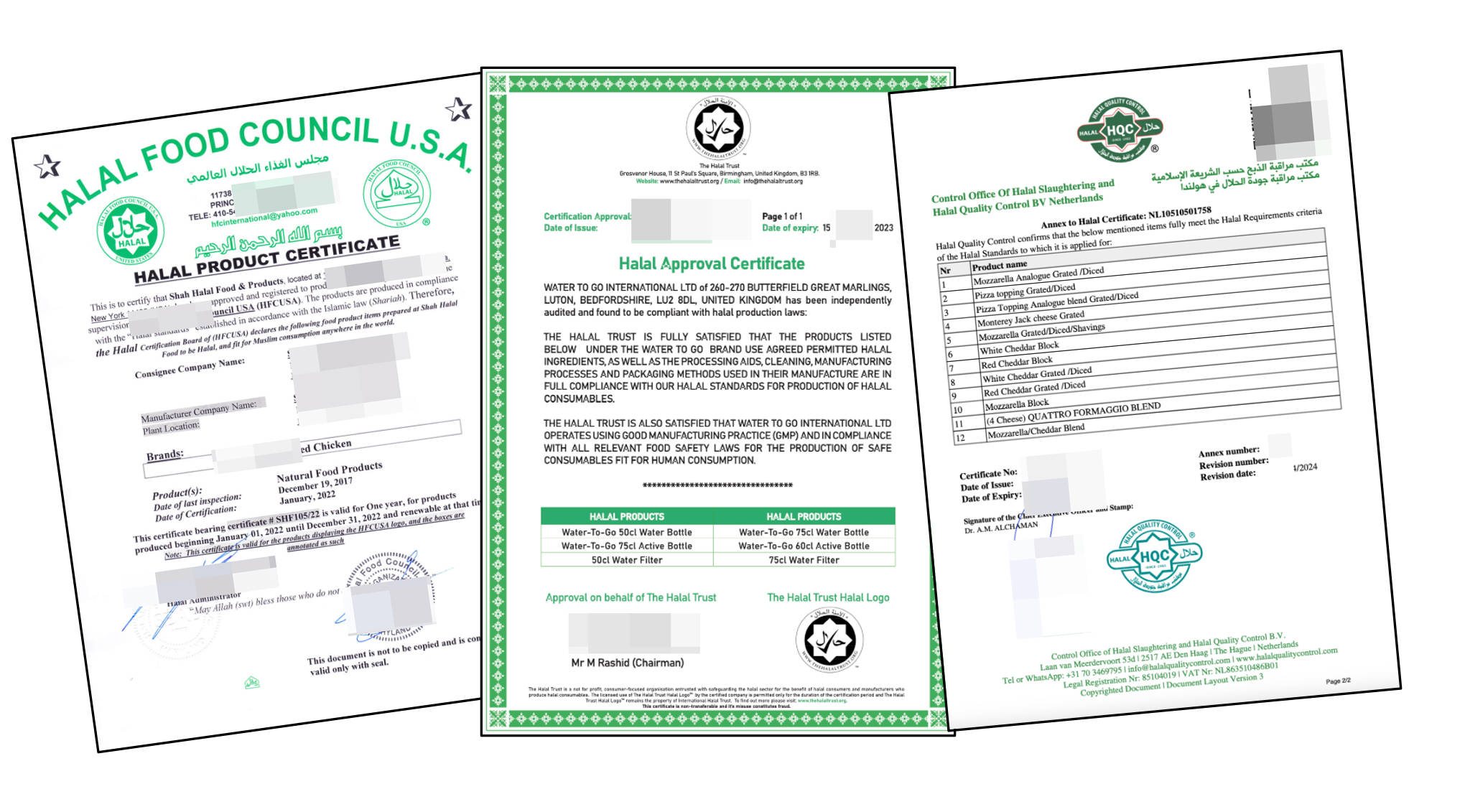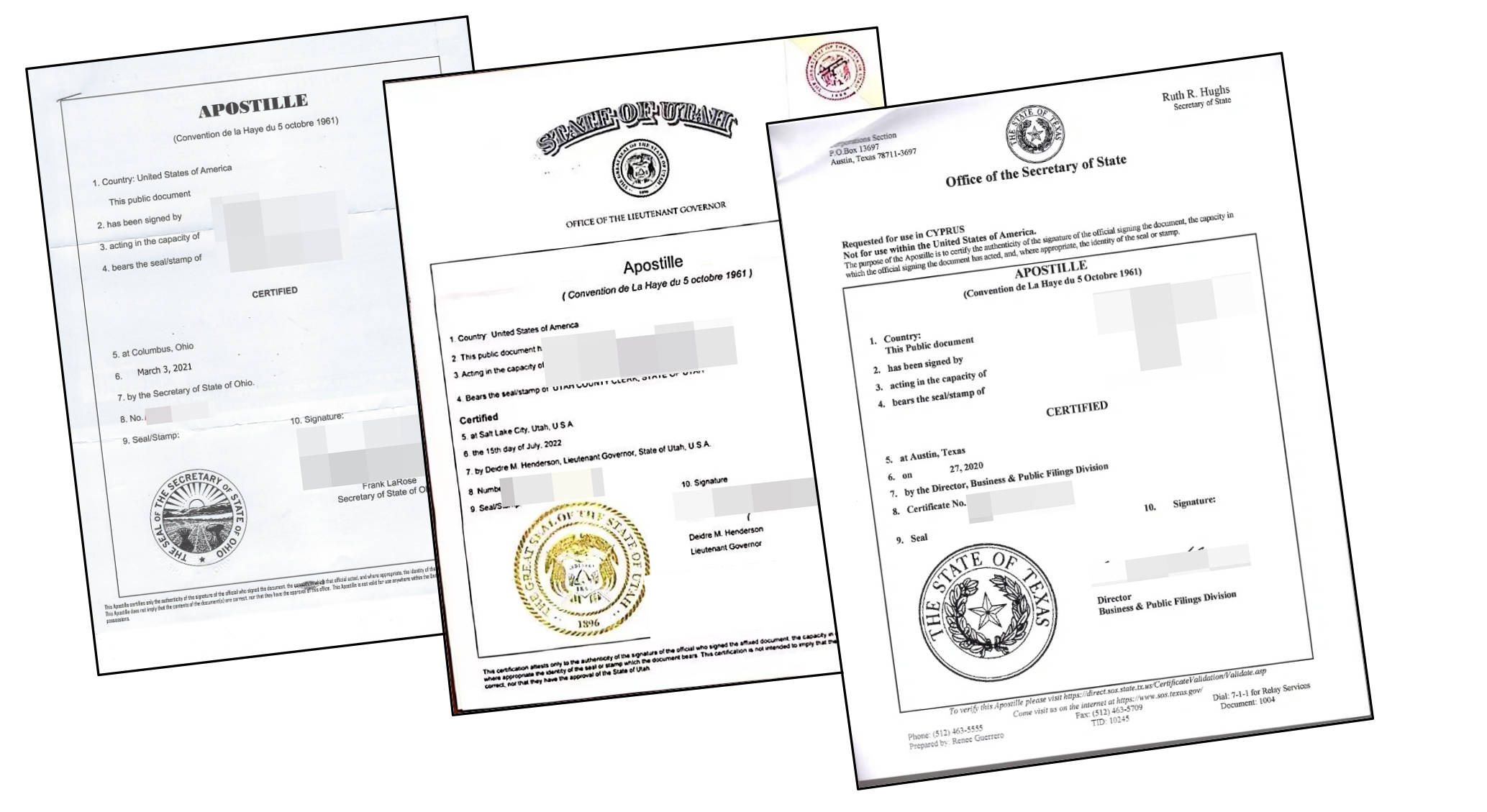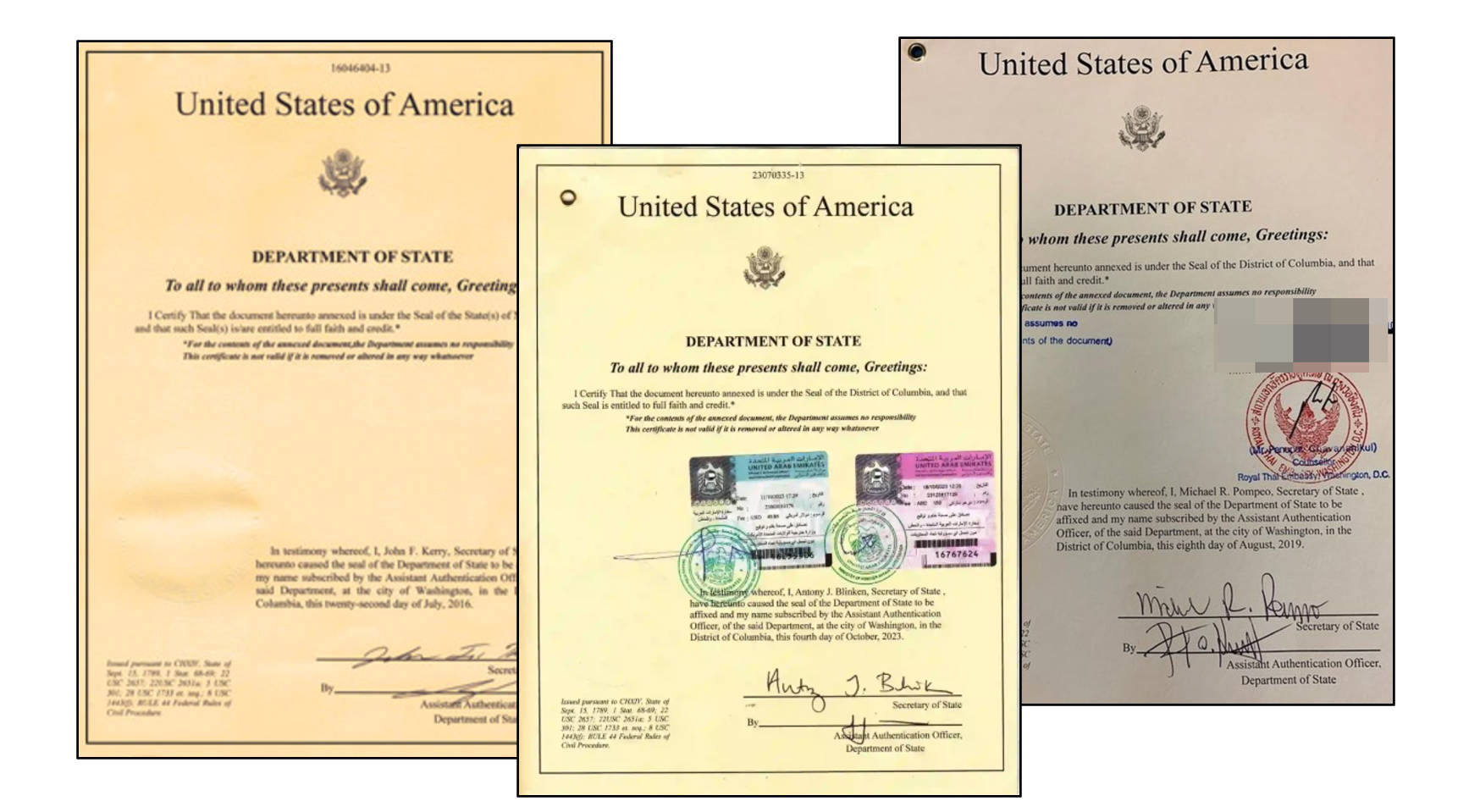U.S. Halal Food Certification, Hague Certification, and Consulate Certification

Different laws and standards across countries and regions make the circulation and certification of goods in international trade particularly important. This is especially true for products related to food safety and religious practices, such as halal food, where the certification process can be quite complex. In the U.S., halal food certification is not just a religious designation—it also involves international legal and document authentication procedures, including Hague Certification and Consulate Certification.
What is U.S. Halal Food Certification?
U.S. Halal Food Certification is a certification that verifies food or food production processes comply with Islamic law. This includes ensuring that the food does not contain pork or its derivatives and that the slaughtering process follows Islamic regulations. In the U.S., this certification is typically issued by certifying bodies through rigorous inspections and reviews to ensure that products meet all halal requirements. This certification not only helps Muslim consumers identify suitable food options but also provides food manufacturers with access to international markets.
Case Study: U.S. Halal Food Certification
In Houston, Texas, there is a company specializing in the production and export of beef products called Houston Premium Beef Co. This company ensures that its beef meets both U.S. Department of Agriculture (USDA) standards and the high-quality requirements of various cultural and religious groups worldwide. One of its target markets is China, particularly consumers in Yinchuan, Ningxia, where there is a significant demand for halal food among Muslim consumers.
To enter the Chinese market, Houston Premium Beef Co. needed to ensure that its beef products not only met international trade standards but also obtained Halal Food Certification. This certification was crucial to verifying that their products were produced in full compliance with Islamic dietary laws, including proper slaughtering and handling procedures. Therefore, they decided to apply for U.S. Halal Food Certification (Halal Certificate).
During this process, they encountered several challenges. First, they needed to find a reliable halal certification agency to verify that their production process and products met halal certification requirements. Second, after obtaining the certification, they had to legalize the certification documents to ensure recognition by importers in Yinchuan, China. This involved navigating the complex procedures of Hague Certification and Consulate Certification.
At this point, they reached out to Washington, D.C. Notary Office, a professional document processing service specializing in international document authentication. The office not only helped Houston Premium Beef Co. understand the entire certification process but also handled all the complicated steps on their behalf, including preparing the necessary documents, submitting them to the U.S. Department of State, and obtaining approval from the Chinese consulate.
With the help of Washington, D.C. Notary Office, Houston Premium Beef Co. successfully completed the Hague Certification and Consulate Certification for their halal certification documents. This allowed their beef products to be smoothly exported to Yinchuan, meeting the demands of the local market. The services provided by Washington, D.C. Notary Office greatly simplified the entire process, saving the company significant time and effort. This enabled them to focus on product quality and market expansion without having to worry about the complexities of document legalization and other logistical issues.
This case clearly demonstrates how Washington, D.C. Notary Office serves as an essential partner in international trade, helping companies overcome legal and cultural barriers to ensure their products successfully enter global markets. For businesses facing similar international certification requirements, choosing an experienced and reliable document processing service—such as Washington, D.C. Notary Office—is undoubtedly a key step toward success.
What is U.S. Hague Certification (Apostille)?
Hague Certification, also known as Apostille, is an international authentication process used to verify the authenticity of official documents, making them legally recognized in countries that are signatories to The Hague Convention. In the U.S., if a halal certification document needs to be used in another country, it typically requires Hague Certification. This process is carried out by designated government offices, such as the Secretary of State’s office in each state, which issues an Apostille seal to confirm that the document is genuine and valid.
What is U.S. Consulate Certification (Authentication)?
When U.S. documents need to be used in a country that has not signed The Hague Convention, they require Consulate Certification instead of an Apostille. This is a more detailed verification process that usually involves two levels of authentication: first by the U.S. Department of State and then by the consulate of the destination country in the U.S.
For halal food export documents, if the importing country requires thorough verification of the U.S. certification body and its issued certificate, Consulate Certification becomes a necessary step.
Washington, D.C. Notary Office Provides Document Processing Services
For halal certification documents that require Hague Certification or Consulate Certification, Washington, D.C. Notary Office offers comprehensive document processing services. This includes assisting with document preparation, submitting them to the relevant government agencies, and tracking the entire certification process. Through these professional services, Washington, D.C. Notary Office helps businesses and individuals save time and resources, ensuring that the document authentication process is smooth and efficient.
Halal food certification, along with the subsequent international document authentication, is a complex but essential process for food exporters. By understanding and utilizing professional document processing services, businesses can better ensure compliance with the legal and religious standards of their target markets, facilitating successful international trade.
Apostille Sample

Authentication Sample
